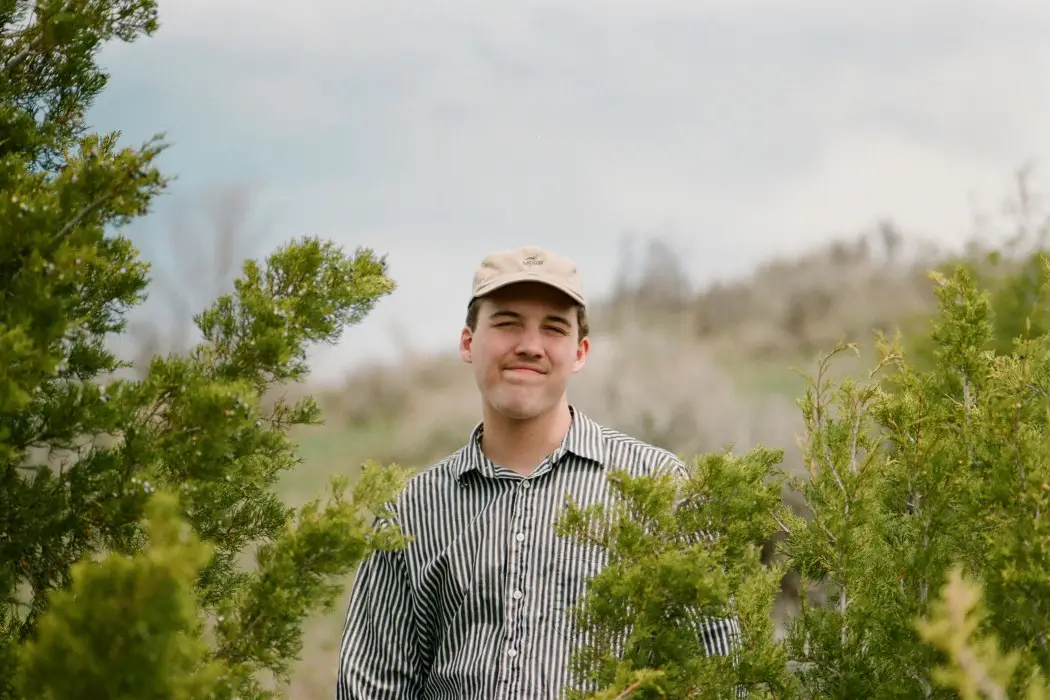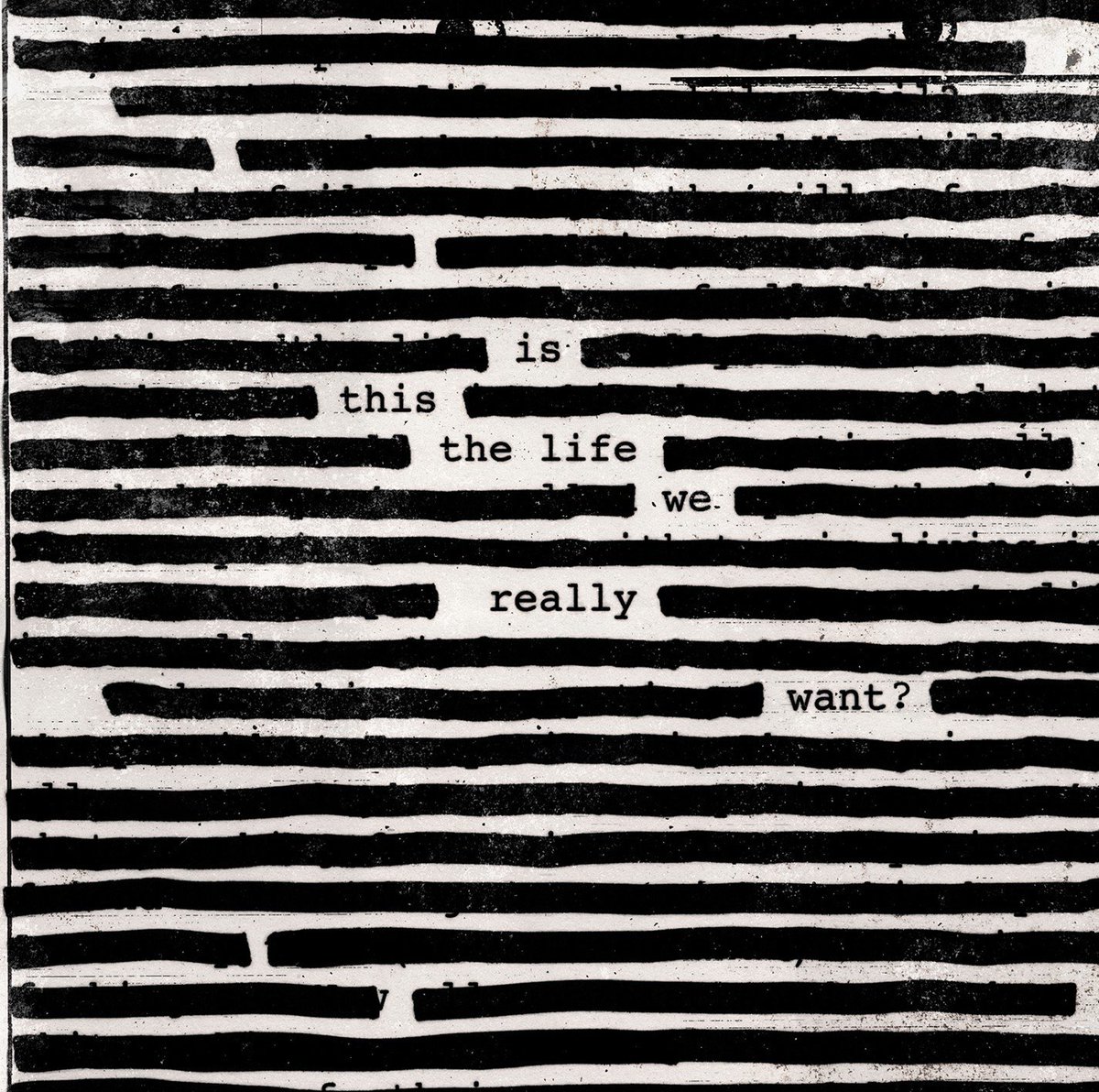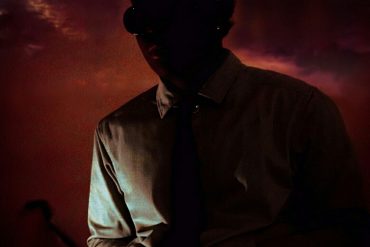Atwood Magazine spoke with Ritt Momney (aka Jack Rutter), whose essential takeway from his debut album ‘Her and All of my Friends’ is, “To accept an ‘okay’ ending.”
— —
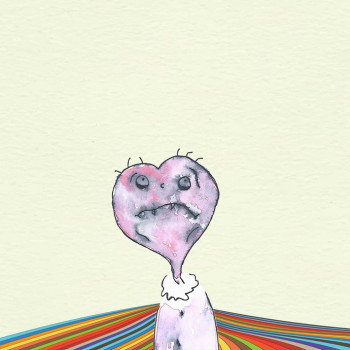
Although unrelated at a glance, there are few things in life that are better representations of self-definition than graduating high school and releasing your first album. Ritt Momney’s debut work, Her And All Of My Friends happens to capture both.
The 13-track album puts a deeply personal twist on the volatile occasion we all go through of leaving home for the first time and confronting the death of familiarity. As a whole, the work is a cathartic outlet following a heartbreak and an exploration of sadness as an emotion, while chronologically it plots the emotional stages that eventually brought singer and lyricist Jack Rutter to acceptance of his situation. The aftermath of the album release allotted further self-reflection as Rutter noticed parallels between two themes he thought to be predominantly unrelated throughout the writing process – a breakup and a loss of connection with the church.
This artful lack of intention contributes a unique aspect to the album that parallels the ambiguity and confusion of leaving your youth behind, provoking a level of thought not seen before out of the group. Atwood Magazine spoke with Rutter, whose essential takeaway from the album is, “to accept an ‘okay’ ending”.
Listen: Her and All of My Friends – Ritt Momney
:: A CONVERSATION WITH RITT MOMNEY ::
Atwood Magazine: How does it feel to have your first album out?
Ritt Momney: It’s awesome – it was very anxiety inducing at first, but now that it’s out and people are saying good things, it’s definitely nice to move on. Most of those songs were songs that I wrote like a year or two ago, but the whole production process took forever. It was kind of like I was doing more of the science parts of it for the last like, while, rather than the art part of it, and that part I don’t like as much. It’s a good feeling for sure.
Could you elaborate on what you mean by the science and art parts of it?
Ritt Momney: I see the art part of it as obviously writing it, and there’s also a lot of art aspects to the production. As far as effects and stuff go – there are definitely some really fun artistic aspects of production. Then the science part is mastering and some of the post-production stuff, along with the business stuff that I’ve been doing more of with the album roll out. The science stuff – you have to do it obviously – and I’m glad that I did. I would rather do it myself than have someone else do all the more boring stuff that is just necessary to making the songs sound good. That part was definitely less fun, but I appreciate the whole process for sure.
I have to ask – the name Ritt Momney. Is there any significance behind it?
Ritt Momney: No, there’s literally no significance behind it. This guy who was in the band a long time ago was like, “What if we called it Ritt Momney”, because we’re from Utah. But now there’s no significance behind it. If there’s one thing I like about the name it’s that means more now than it did before and it’s kind of a contrast between the stupid jokey name and a lot more serious subject matter. It doesn’t matter – it doesn’t keep me up at night. Anyone who already knows about Ritt Momney doesn’t think about the name all the time.
So you started the group with your high school friends, right?
Ritt Momney: Yeah, it was basically me and five other people, I think? Maybe four. It was just a group of friends that all liked to do music and lots of us played multiple instruments. We switched around a ton. That was less fun for sure because at that point I wasn’t good enough at producing to make a Spotify-worthy song so we had to go in a studio and record stuff. That’s what we did with Young Adult and that first little 3-song EP.
So Young Adult and that EP you mentioned came out when you were still in high school?
Ritt Momney: Yeah, so Young Adult probably came out around my junior year – the end of my junior year maybe. The other stuff came out a little after that, and then everybody in the band either left on a Mormon mission, if you’re familiar, and then my girlfriend who was also in the band left for Hawaii and that was a super rough time. That’s what the whole first part of the album is about. Just her leaving. Basically, the consensus around Ritt Momney at that point was we’ll see what happens when everyone gets back from their missions and maybe we can start it back up again and it was kind of like, whatever. It wasn’t a big deal at all at that point. I guess Young Adult was getting a few listens locally but it wasn’t really anything to be that excited about. Then the girlfriend that went to Hawaii – we were sort of like, on and off. We were talking still and then right before we decided to completely stop talking I planned a trip to Hawaii with her family and the tickets were already booked so I had to go on that. It was a pretty awful experience, but I remember we went to this Mac Demarco concert and I told her, “I’m going to go home and I’ll get super famous and I’m going to come on tour in Hawaii, and you’re going to see me performing and fall back in love with me”. That was kind of the main motivation for a while, and then I went home and I made “Something, In General” and it started doing well. That was when I started taking it pretty seriously – it just took forever for the rest of the album to completely come together because I was being way too much of a perfectionist after that for a long time.
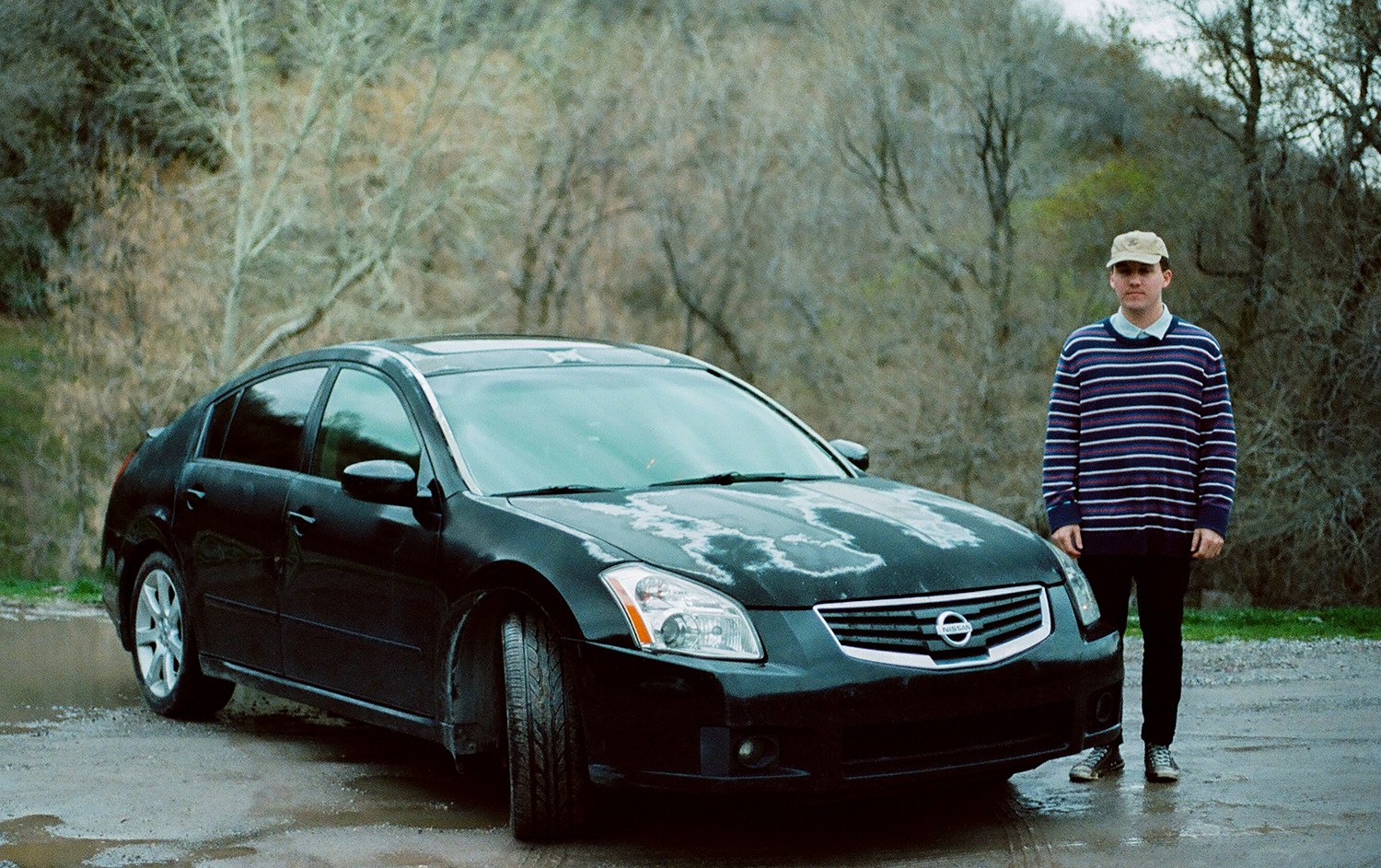
You even have a line that says, “This started as a vie for attention from an ex”. Has the main motivator behind your music developed since then?
Ritt Momney: Yeah, totally. In fact, that kind of alleviated that whole thing. I replaced my need for attention from her with my need for attention from all of the fans. We’re actually back together now but it’s a lot better than it was before – it’s not unhealthy like it was. That was kind of how it started out but at this point it’s a lot deeper than that. My parents always taught me to be a realist and were like, “If you want to go for this obviously you can and you have that choice, but you want to have backup plans and want to know when to start doing something else if it’s not working out”. I saw a window of opportunity when “Something, In General” got popular a little bit. I was like, okay I actually have a chance to build on this and make a career for myself somewhere in the music industry – whether that be commercial writing opportunities that open up through Ritt Momney or like producing for other people or actually being able to make a career out of my own music, which would be ideal.
That reminds me, between the first and the last tracks of the album I found it interesting that you started off pleading to know why “her and all of my friends” left and then the last lines of the album are basically thanking them for the inspiration and the good times. You said it was written over a couple of years, so do you feel like you grew over the writing process in order to find that acceptance?
Ritt Momney: Absolutely. I think the writing definitely helped me grow throughout that process but mainly honestly just getting out of the house – like the couple of years or the first year after high school where you’ve got to get out of the house – that’s definitely a time where people grow a ton. Basically, my life was the exact same up until I graduated high school. I was going to the same school that all my friends did and I did the same stuff. And then right after high school everything totally changed and adapting to that was a huge growth experience. I do think the first song of the album is me being confused and worried and super sad. The end isn’t necessarily not sad, it’s kind of like, all this stuff happened and it’s fine. It’s not a happy ending necessarily, it’s just a real ending – this happened and I learned from it. I tried to keep it realistic as opposed to romantic, like how it might be in some blockbuster movie or something. It’s representative of the ambiguity that you’d see in actual life where nothing really means as much as you want it to mean.
Speaking of sad songs, you mention in your lyrics that you don’t think any of your happy songs turned out that great - do you feel any connection at all to your upbeat songs?
Ritt Momney: Firstly, I think that there are a few upbeat songs – at least musically and melodically – that are still pretty sad. But as far as my connection to my happy songs – I guess “Phoebe” is pretty happy and so is the end of “Pollution / Disclaimer”. It’s not necessarily that they don’t mean as much to me, I just feel like there’s so much more to learn about myself in the darker, sadder aspects of things. When I’m happy I know why, and when I’m sad it’s more of an exploration of trying to figure out my head. There’s a lot more confusion associated with sadness than happiness I feel like and that confusion is what makes me want to write songs and figure it out.
Your lyrics are obviously deeply personal, and you’re about to embark on a tour pretty soon. What’s it like to share that much of yourself with a live audience of strangers?
Ritt Momney: Honestly, I have felt very little anxiety about that – sharing too much of myself. The way people are these days and especially within the indie crowd, they really reward vulnerability. It’s not like anybody is commenting on songs and saying, “You’re a fucking pussy, why are you writing about this stuff”. People are nice about it. I never really felt scared about sharing all of this really personal stuff. I think people can relate to it, and they may not have heard a bunch of other music with people being as vulnerable. I’m laying out exactly how things are going and how I’m feeling on a deeper level which is probably more relatable to some people.
Going off of that, I can imagine that writing the lyrics is cathartic for you personally, but is there anything you want your listeners to take away from this album?
Ritt Momney: I haven’t really thought about that. I think the main thing that I learned that I would want other people to know is just that it works out, but not necessarily in a happy ending. It kind of just works out in a very neutral way most of the time. I guess what I would tell people is, accept an okay ending instead of waiting for a happy ending. The outro song for me is representative of saying, “It’s not perfect but it’s cool and I’m okay with that”. If I had never reached that state of mind I would probably still be sad because I wouldn’t be okay with myself until everything wrapped itself up into a bow.
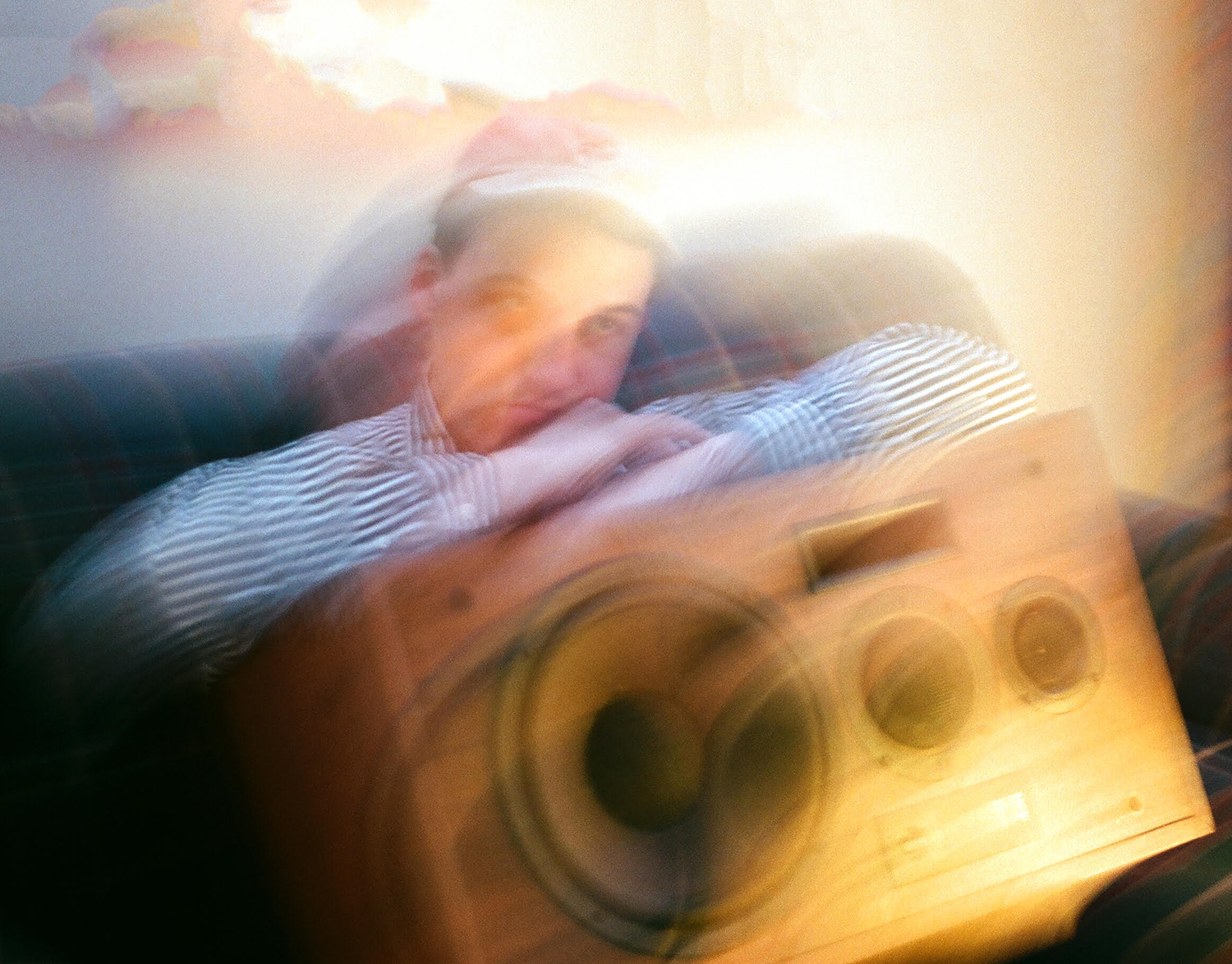
I wanted to talk about my personal favorite part of the album which is that anecdote in “(If) The Book Doesn’t Sell” with God and the Devil at the kitchen table. I feel like that kind of veers from the breakup theme, but can you speak a bit to that and how it ties into the themes of the album?
Ritt Momney: I wasn’t really a believer in this whole concept before I made this album – I didn’t believe in the idea of writing a song and learning about yourself afterwards and finding all this meaning that you were subconsciously putting into it – like “Oh yeah, this is what I meant and this is this part of me trying to express itself” after you totally finish the song. After this whole thing I found so many of those, “That was what I was trying to say and that’s how that’s connected and now that makes sense”. This guy at the Salt Lake Tribune wrote an article called “Breakup Stories With The Church” or something, and it was talking about how the first part of the album was about a breakup with a girl and the second part was about a breakup with the church that I had been a part of for so long. Then I listened again and I could see all of these similarities between the two and I sort of felt the same way in a lot of ways about both of them. I really cared about these things before but it turns out it wasn’t the best thing for me, and there are negative repercussions of separating myself from either of them. I was sort of worried at first because I was throwing these songs in there and it was kind of weird to me that some of the album was very specifically about a breakup and some of it was very specifically about religion, but the way it came together in the end after listening to it, there was just way more cohesiveness than I would’ve imagined or was trying to put in there because it was a similar experience for me with both of those things.
That was my take-away from the album - that it was overall about loss, like the friends and the girlfriend and even from the religious perspective - that’s like losing a part of yourself in a sense. They’re very tied together.
Ritt Momney: That could be the coolest part about having this album done and out is I’m learning all these connections and stuff that I was meaning before.
I’m going to let you go in a minute but I have one more question. So Her And All Of My Friends really defined what Ritt Momney is, where do you see your music going from here and what are you most excited about in the future?
Ritt Momney: I love that question because I’m so excited about being able to move on and do something else. I’ve just barely started writing more songs because I had major burnout for a while. I couldn’t stand music for a while. At this point I’m not totally sure what I want the next project to be or what I want it to be about, but I definitely want it to be on the darker side. I’ve been thinking a lot about the really dark side of people – the animalistic side that everybody has but everybody covers up – and kind of play with that idea a bit. I might want to do a thing where I’m playing a character who maybe is like, completely the worst person ever. I’m not sure because then I don’t really know how to write songs unless they’re exactly what I’m feeling or thinking – but I’m so so excited to get to experiment with all that and start doing more stuff.
I feel like that hasn’t been done that much before - the concept of playing a character. It’s definitely a challenge if you’re not writing from something deeply personal.
Ritt Momney: I feel like if I can tap into the really messed up side of myself then that could be fun to try out but I have no idea. The fact that I have no idea is so cool – it’s just like a totally blank slate and that’s super fun for me.
— —
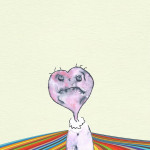
Connect to Ritt Momney on
Facebook, Twitter, Instagram
Discover new music on Atwood Magazine
? © James Kowalski
:: Stream Ritt Momney ::

